
Lulu Kennedy-Cairns is a Scottish singer, actress, and television personality. With a career spanning six decades, her debut single a cover version of The Isley Brothers song "Shout", reached the top ten of the UK Singles Charts in 1964. In 1967, she rose to international prominence after appearing in the box office film To Sir, with Love, singing the theme song which topped the US Billboard Hot 100 for five consecutive weeks.

Mary Hopkin, credited on some recordings as Mary Visconti from her marriage to Tony Visconti, is a Welsh singer best known for her 1968 UK number 1 single "Those Were the Days". She was one of the first artists to be signed to the Beatles' Apple label.

The Proclaimers are a Scottish rock duo formed in 1983 by twin brothers Craig and Charlie Reid. They came to attention with their 1987 single "Letter from America", which reached No. 3 in the United Kingdom, and the 1988 single "I'm Gonna Be ", which topped charts in Australia, Iceland and New Zealand. The duo's biggest album, Sunshine on Leith (1988) has been certified multi-Platinum in Australia and Canada, selling over 2 million copies worldwide, including around 700,000 in the United States. The Proclaimers have sold over 5 million albums worldwide.

The Osmonds were an American family music group who reached the height of their fame in the early to mid-1970s. The group had its best-known configurations as a quartet and a quintet. The group has consisted of siblings who are all members of a family of musicians from Ogden, Utah, and have been in the public eye since the 1960s.

Paul Julien André Mauriat was a French orchestra leader, conductor of Le Grand Orchestre de Paul Mauriat, who specialized in the easy listening genre. He is best known in the United States for his million-selling remake of André Popp's "Love is Blue", which was number 1 for 5 weeks in 1968. Other recordings for which he is known include "El Bimbo", "Toccata", "Love in Every Room/Même si tu revenais", and "Penelope". He co-wrote the song Chariot with Franck Pourcel. Pourcel and Mauriat.
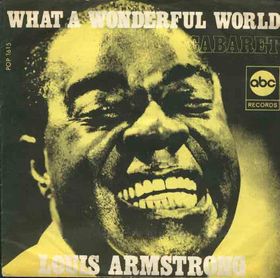
"What a Wonderful World" is a song written by Bob Thiele and George David Weiss. It was first recorded by Louis Armstrong and released in 1967 as a single. In April 1968, it topped the pop chart in the United Kingdom, but performed poorly in the United States because Larry Newton, the president of ABC Records, disliked the song and refused to promote it.
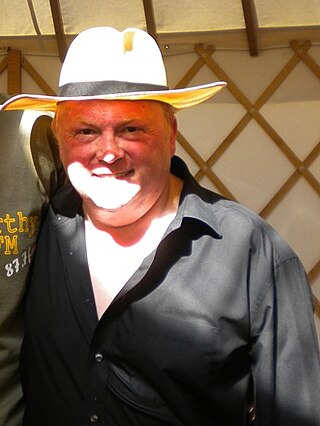
Michael Philip Batt, LVO is an English singer-songwriter, musician, arranger, record producer, director and conductor. He was formerly the Deputy Chairman of the British Phonographic Industry.
Mary Sandeman, better known by her stage name Aneka, is a retired Scottish traditional singer.

"Ben" is a song written by Don Black and Walter Scharf for the 1972 film of the same name. It was performed by Lee Montgomery in the film and by Michael Jackson over the closing credits. Jackson's single, recorded for the Motown label in 1972, spent one week at the top of the Billboard Hot 100, making it Jackson's first number one single in the US as a solo artist. Billboard ranked it as the number 20 song for 1972. It also reached number 1 on the ARIA Charts, spending eight weeks at the top spot. The song also later reached a peak of number 7 on the UK Singles Chart. In 2004, the song appeared in The Ultimate Collection.
"Too Young" is a popular song, with music written by Sidney Lippman and lyrics by Sylvia Dee. A recording of the song was released by Nat King Cole in 1951, which reached No. 1 in the United States and became the best-selling song of the year. The song was an early attempt by music labels to appeal to the younger demographics and its success later led to a boom of music that caters to the young. Another successful version was released by Donny Osmond in 1972.

David Whitfield was a popular British male tenor vocalist from Hull. He became the first British artist to have a UK No.1 single in the UK and in the United States with "Cara Mia", featuring Mantovani and his orchestra. He died from a brain haemorrhage in Sydney, Australia, while on tour at the age of 54.
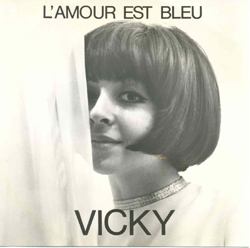
"L'amour est bleu" is a song whose music was composed by André Popp, and whose lyrics were written by Pierre Cour, in 1967. Bryan Blackburn later wrote English-language lyrics for it. First performed in French by Greek singer Vicky Leandros as the Luxembourgish entry in the Eurovision Song Contest 1967, it has since been recorded by many other musicians, most notably French orchestra leader Paul Mauriat, whose familiar instrumental version became the first number-one hit by a French lead artist to top the Billboard Hot 100 in America.
Neil Reid is a Scottish former child singing star, winner of ITV's Opportunity Knocks, and the youngest person to reach number one on the UK Albums Chart.
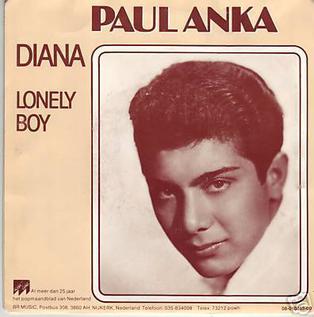
"Lonely Boy" is a song written and recorded by Paul Anka. Recorded in August 1958 with Don Costa's orchestra in New York, "Lonely Boy" was not released until May 11, 1959. Anka sang this song in the film Girls Town. When released as a single, it topped the Billboard Hot 100 for four weeks, becoming Anka's first song to do so, although he had earlier topped Billboard's Best Sellers in Stores chart with "Diana". Billboard ranked it as No. 5 for 1959. The song reached No. 2 in the Canadian CHUM Charts.

"Long Haired Lover from Liverpool" is a pop song best known as a hit for Little Jimmy Osmond. Written by Christopher Kingsley and produced by Mike Curb and Perry Botkin Jr, "Long Haired Lover from Liverpool" was a UK number one single for Jimmy Osmond. Riding high on the popularity of the Osmonds, Jimmy had a massive hit with the song, in the process becoming the youngest person to ever reach number one on the UK Singles Chart aged 9 years 8 months.

"Love Me for a Reason" is a song by Johnny Bristol. It was recorded most famously by the Osmonds, and released in 1974. Twenty years later, Boyzone covered the song. Both versions were successful, reaching the top 10 of the charts in many countries.
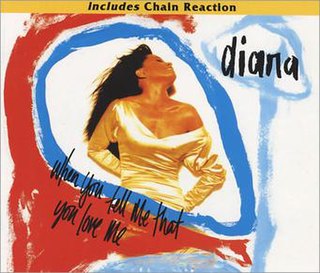
"When You Tell Me That You Love Me" is a song by American singer Diana Ross, released on August 20, 1991 as the lead single from her nineteenth studio album, The Force Behind the Power (1991). The song was released on the Motown label in the United States and by EMI Records in the United Kingdom. It was written by Albert Hammond and John Bettis, and produced by Peter Asher. A sentimental ballad, it became the album's biggest hit, peaking at number 37 on the US Billboard R&B singles chart and number two on the UK Singles Chart. Ross considers it one of her signature songs and it was subsequently covered by various artists. The UK release of "When You Tell Me That You Love Me" included her 1985 hit "Chain Reaction".
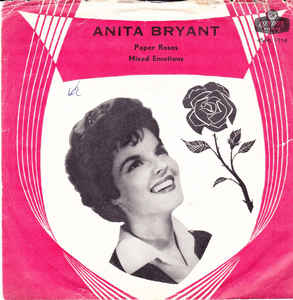
"Paper Roses" is a popular song written and composed by Fred Spielman and Janice Torre. It first was a top five hit in 1960 for Anita Bryant. Marie Osmond recorded it in 1973 and took her version to number one on the US country chart.
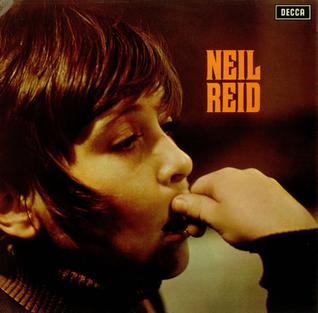
Neil Reid is the first album, for Scottish Opportunity Knocks winner, Neil Reid. The album reached number 1 on the UK Albums Chart and the single "Mother of Mine" also peaked at number 2 in the UK Singles Chart.
















